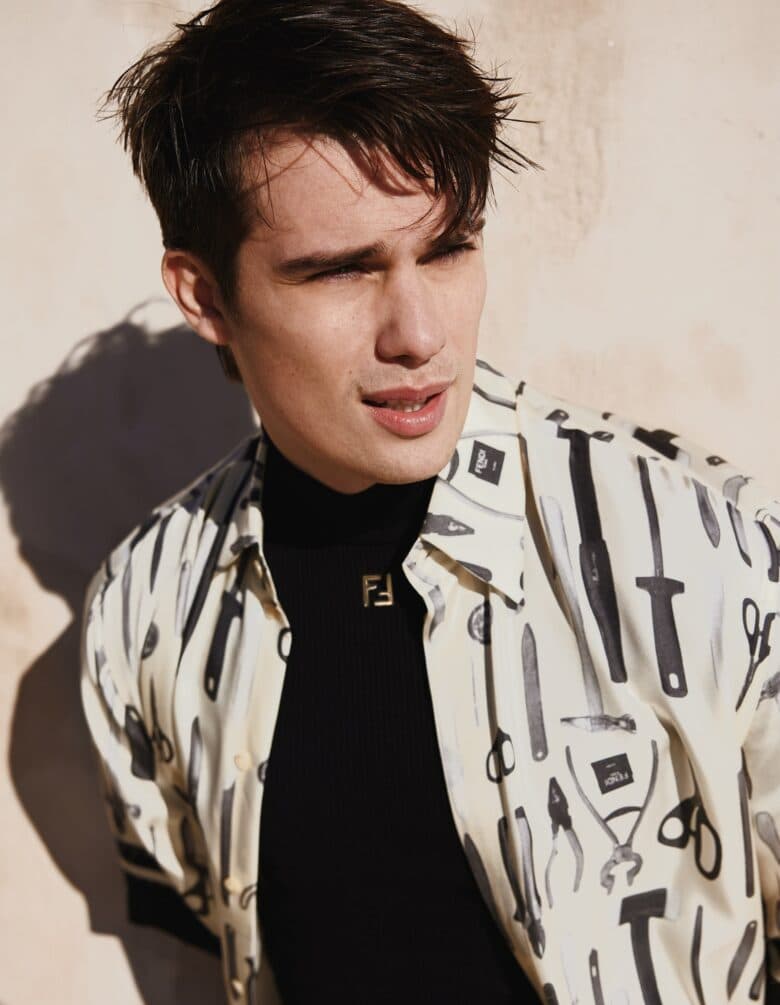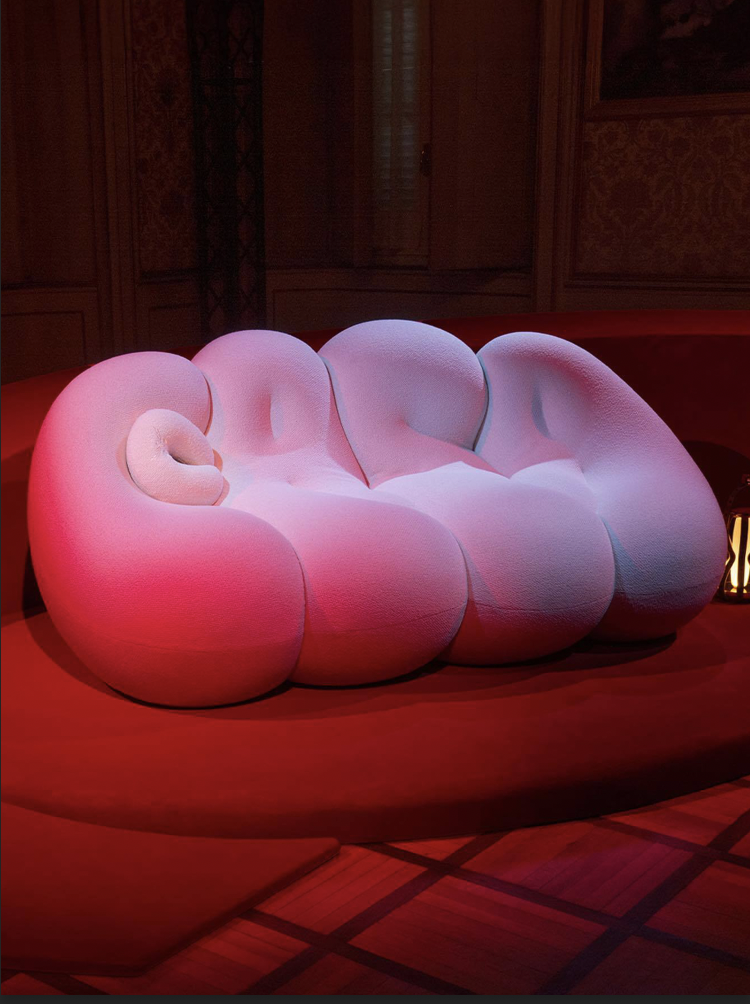“It’s good to do things that scare you”: Toni Collette talks giving it all to ‘Hereditary’
“I’ve done four horror movies but…I hate watching them”, Toni Collette confides with a laugh, “however, I think Hereditary is not a typical horror movie and that’s one of the things that I loved about the script”. Ari Aster’s feature debut is certainly anything but typical, a sharply honest portrayal of bereavement and its debilitating effects on families everywhere, it’s as moving as it is disturbing. To Toni “it was just this really beautiful but painful look at grief, how family dynamics change”, she explains “you couldn’t really categorise it and I love that about anything in life”. Looking outside the box has been a trait of the actress since she discovered drama back in high school, “I suddenly felt like I was alive”, she remembers “even though I was really bright at school I just knew I had found my thing so told my parents I wanted to leave school and pursue acting – can you imagine?!”
But it sure paid off, working her way over to the bright lights of Hollywood and rising to a household name with the titular role in Muriel’s Wedding, a credit Collette still gets reminded of to this day: “I got so tired of people saying ‘You’re terrible, Muriel’”, she laughs. “But people still say it to this day,” she goes on, “and for many years I’ve realised how incredible that is: there are so many films, so many stories told, but for one film to stick with people like that… To feel so fond of her character, and be so heartfelt about it, it’s really powerful.” It’s all down to the maker herself, a deeply thoughtful actress who sinks deep into her roles, the poignancy of her performances never ceases: from the Oscar-nominated development of Lynn Sear in The Sixth Sense to the raw emotionality of Little Miss Sunshine’s Sheryl Hoover.
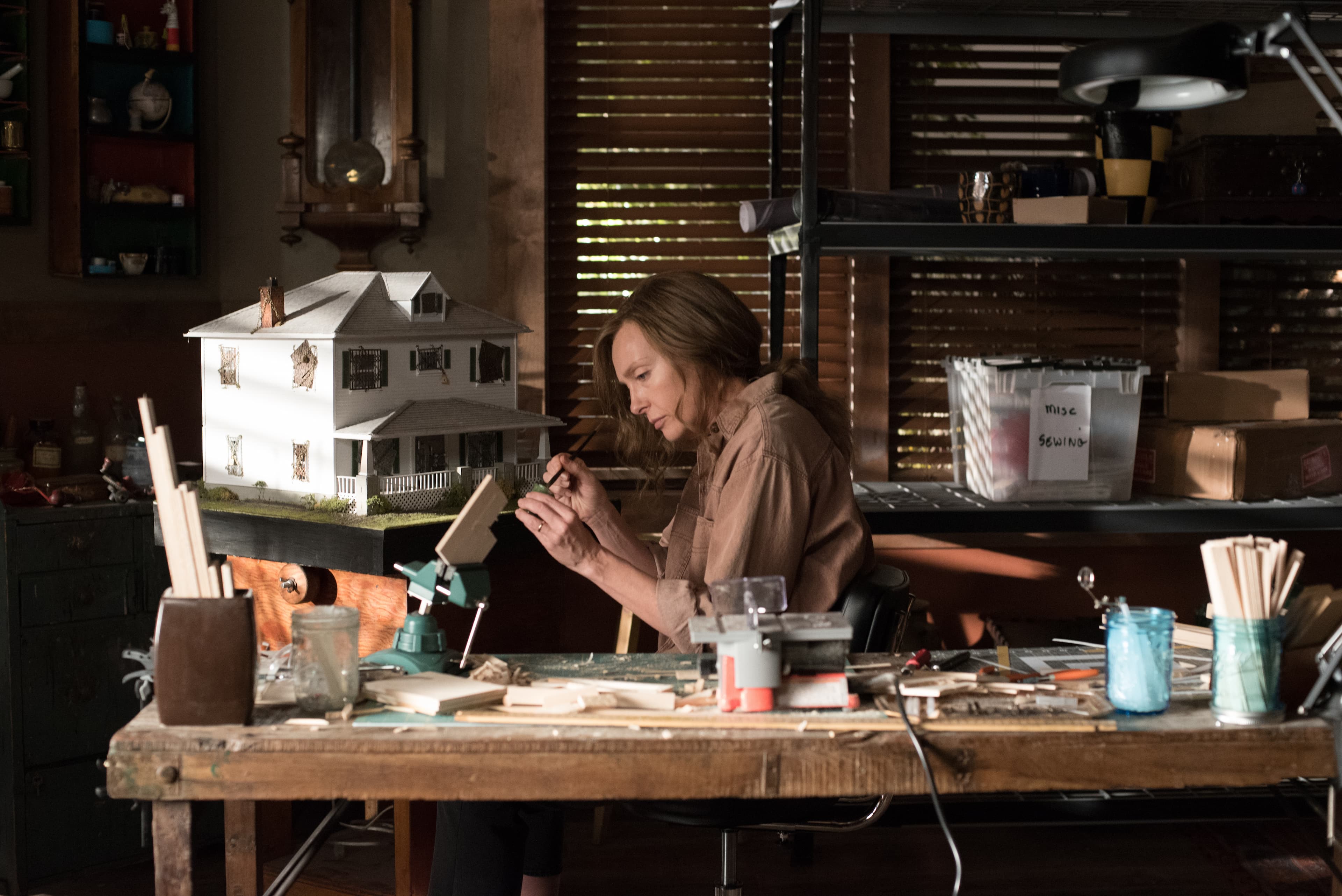
The diverse creativity and tender consideration she brings to roles is credit also to her choices: “I don’t care about always doing lead roles, sometimes I’ll do a film just because I believe in it even if it’s just a tiny part”. Seeking the same buzz she’s always felt, Toni goes on “a gut feeling” when picking her roles, “there’s a knowledge that I have to do it”, and Ari’s daring script gave her that immediately. “When I met with him it was very evident that he was all over it, I’ve never worked with somebody so specific and meticulously prepared as Ari was”, and you can see it in every intricately crafted shot. A director as bitten with the movie bug as she was, Hereditary was his vision through and through: “it was so important to him, the story and how it would be created, and that’s just infectious to be honest”.
Aiming to draw people in to the story as effectively as possible, Collette describes the process as “so satisfying”, draining yes, but absolutely worth it for the greater good of the film. “I think when you’re watching an actor who’s presentational I’m just drawn out, you’ve got to believe what’s happening”, she asserts, “in order to do that for Hereditary I put myself in [Annie Graham’s] position and I empathised”. Creating a potent backstory was important for the actress, who refuses to “draw on personal experiences because it feels like a betrayal to my own life”, and instead creates them from scratch. “Before the events of the movie, her whole life there’s been an unsettled ominous feeling”, and as the film progresses Annie is stripped of her autonomy as the tale twists and turns, seeking to dig up the truth “whilst there’s that need to connect with her children, she’s got a growing awareness of what’s underneath”.
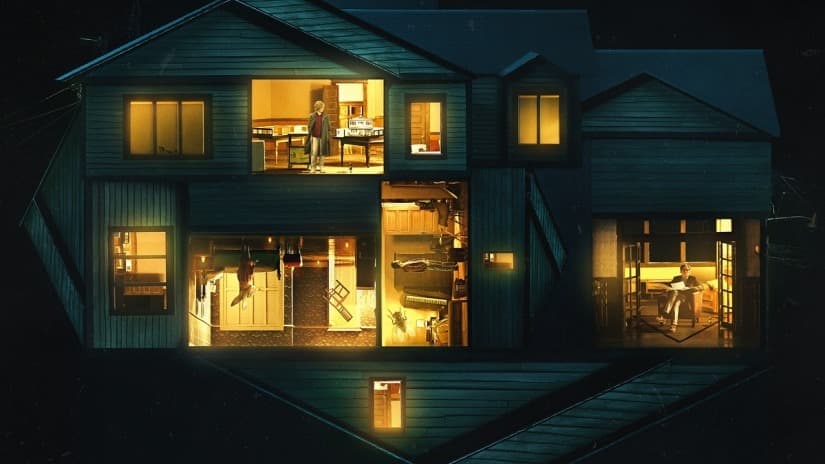
Maneuvering around the central theme of grief, Toni Collette created Annie to be someone and a part of something that “everybody could relate too”. “I thought it was a really good opportunity to be real with it: it’s an experience and understanding that unifies us all, as a part of what it is to be human, it’s inevitable but considered somewhat taboo”, she muses. As Ari Aster exemplified, there’s a sense of awkwardness surrounding grief in cinema, where people feel the need to sugarcoat it and conclude their stories of bereavement with an every-cloud-has-a-silver-lining moral. But for Hereditary, Annie and her family are affected by death, permanently and overwhelmingly: “It’s just shit, death is the shittiest part of life”.
As for the aftermath of death, Aster takes us down into the realms of the supernatural, into something that scares Toni Collette even more than “slumber parties with The Nightmare on Elm Street”. Would she ever try a séance, for instance? “There is absolutely no way I would mess around with the unknown!” she exclaims, “I wouldn’t do it because I really do believe in it, I believe that the physical world we live in is not everything”. As Hereditary warns us, once you’ve delved in there’s no going back: “Don’t open that door!” Toni Collette protests, “You don’t know what you might invite in.” Believing in what Aster teaches, that we absorb everything from our conception to our present, Collette explains that it’s why she refuses to watch many horrors, “everything we take in we retain, and there’s no room for that in my head.” She goes on to explain she’s “already too fertile in my mind… I don’t need those kind of images popping into my head at night, there’s enough bad out there as it is”.
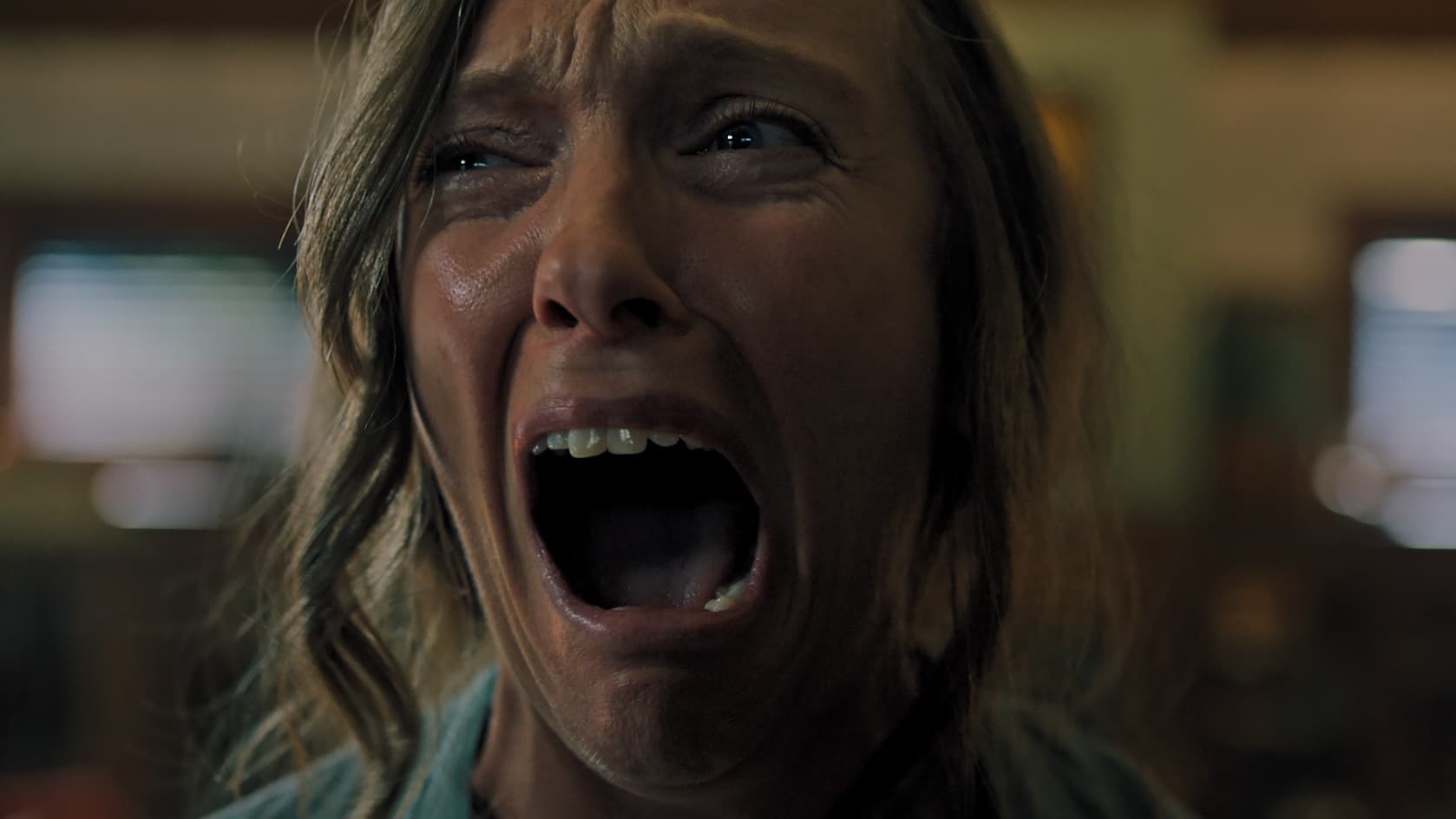
Aster’s feature, however, presents itself as a necessary tale; whilst overtly frightening and tense, his scenes and scares never feel gratuitous, Hereditary is his story and he’s found a fresh way to tell it. In Toni Collette, he found the perfect storyteller: an actress unafraid to confront the evasive and indulge in the extreme, she’s one-of-a-kind. When thinking of what’s coming next for her, she emphasises her open-mindedness and dedication: “If the story requires it and I love the story, I don’t know if there’s anything I wouldn’t do”. In life, like in cinema, she’s bold, liberal and empowered: even when asked inappropriate questions by pushy male journalists (“I hear that you once had an orgasm whilst meditating” one man shouted across the table) she holds her own and ensures her autonomy. It may be the post-Weinstein world, but there’s plenty more to be done, and Toni Collette has been paving the way, pushing forward and taking control for decades now, and she’s not taking a break anytime soon. Why, you may ask? “Because it’s good to do things that scare you”.
Toni Collette stars as Annie Graham in Hereditary, in cinemas now.
